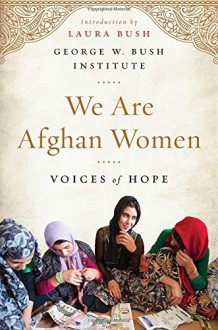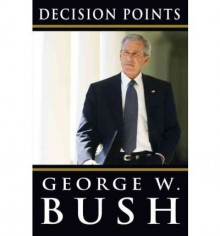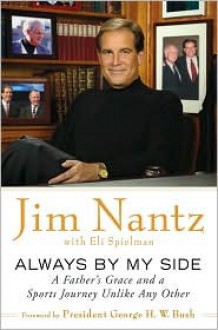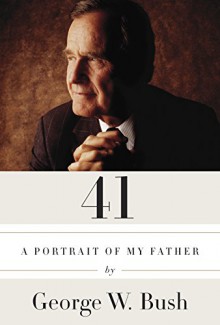
We Are Afghan Women: Voices of Hope, George W. Bush Institute, narrated by Pam Ward
The introduction of the book was written by Laura Bush. The body of the book tells the story of Afghan women through a multitude of witnesses. Testimony is given about their lives in Afghanistan over several decades, beginning in the 1980’s. It is the story of their survival. As rival factions competed for control, many were forced to run. They relocated to avoid death or rape. First the Russians came, than the Mujahideen, then the Taliban, then the United States. When the American soldiers were removed prematurely, Daesh (Isis in Afghanistan) and the Taliban began to take root once more. Their struggle is ongoing.
I found the stories each woman told to be a bit repetitive, since each pretty much described their lives during the same time periods. Still, they were very eye-opening about the life they were forced to lead. They labored to get an education which was made possible, ultimately by foreign countries, the United States and England, more often than not. The group of women selected, and the odd man, were exceptional in intellect and ambition. Many had families that supported their efforts, even though it went against the culture and the ruling factions. Those families seemed to be educated and more modern. Many of the women, once retrained and/or reeducated, often in hidden schools, wanted to give back to their country in some way, if they were able.
The women were retrained for work by organizations that provided them with free education and a safe space. Many worked for a rug company called ARZU that would hire and train them only if they sent their children to school. Although many professions were forbidden to women, they managed to learn some new ones and improve their skills in old ones. They learned beekeeping, (forbidden), rug weaving, needlework and other skills needed to survive. Sports instruction taught women self confidence and self esteem. Some women became professionals. Women needed some source of income to feel independent. Widows and divorced women were dependent on the kindness of others which was often non existent. They were looked down upon by their culture and their beliefs. Men ruled and women had few rights. Scholarships were arranged for those qualified and many who were top students were enabled to study abroad and to positively change their lives. Some became lawyers, politicians, teachers, entrepreneurs, and doctors. Many brought their new skills and ideas back to Afghanistan to try and rebuild the country. All faced opposition and physical danger to themselves and their families.
In some ways, I found the women to be overly optimistic about being able to bring change to a country where their lives were in danger simply for wanting to work, simply for assuming roles of responsibility. The Circle of the Chador was formed to empower the women in a country that did not value them, but some will be in danger if they step out of the comfort zone. Under the Taliban and Isis, their lives are controlled completely by men. They live and die by the whim of these men, young and old. They can be sold or bartered as property. They do not have rights. The Russians, Mujahadeen, Taliban and Isis raped and murdered whomever they pleased, even men and children. They simply marched in and demanded food, women, homes. They took hostages. Many Afghans were ignorant and believed that the Taliban and Isis actually preached the true world of G-d, not this corrupted version they practice which is from the dark ages. It will be an uphill battle to empower the liberal men who support women’s rights and strong women who demand them, in order to make the necessary changes in government and leadership.
Some of the women blamed the Russians for starting the aggression which destroyed the country and brought in so many ruling, warring factions. Some blamed the United States for coming in, calming things down, but then abandoning them in 2014 which allowed the Taliban and Isis to try and take root once again. Others mentioned the lack of help from the UN. However, ultimately, it is the American tax dollar, or taxpayer that is providing them with the opportunity to expand their horizons and bring back innovative ideas to their country and cities.
I found that the narrator enunciated almost too clearly and seemed to inappropriately stress certain words. Perhaps there should have been several readers who could alternate so the tone of voice would occasionally change. Perhaps, an American reader is simply not as in tune to the emotional connotations of the testimonies as a native Afghan would have been. Also, I could not always tell when the featured testimony changed from one to another because neither the narrator’s tone nor expression changed from one to another, but continued in the same way for each story. I think it would have been better if Afghan women, with the appropriate accent, had narrated the book. The stories would have felt more authentic, more realistic, and the stress on certain words to emphasize feelings and events would have been more appropriate. After awhile, with the narrator droning on in the same tone for each person, it became difficult to concentrate and remain interested. The presentation seemed overly simplistic and even a bit too long. Sometimes it felt like it was an advertisement to support Afghan women, rather than a heartfelt presentation of their lives, experiences and ideas.
The presentations by the women provided a brief, but pretty thorough history of Afghanistan: regarding its poverty, education, ethnicity, language, climate, leaders, politics, women's rights or lack thereof, and the effect of war and aid or lack of aid, for them and their country and culture. Some spoke of the changes in their world because of the attack on 9/11 in America. Suddenly they were feared because of their religious background and culture. I thought that the idea that some women were still completely covered, not by choice, might indicate that the idea of change could be a bit naïve, although most returning Afghan women recognized it would be a long term endeavor to bring positive change to their country.
Innovative women in Afghanistan are working, starting businesses, attempting to help change Afghanistan, to bring it back, but they face hardship, danger, and family opposition. They need support from at home and abroad. Family often had a great influence on the decisions made. Those that did not live in backward ways, the more progressive Muslims, allowed and encouraged their family to grow and thrive, but many still do lack the ability to move on into the modern world. Overall, I found the presentations enlightening, poignant and sad. The suffering and hardship, the abuse of women, the lack of law and order, the demolition of homes, seemed so daunting, it is a wonder anyone would return. It will be a difficult march forward, but they have hope.

 Log in with Facebook
Log in with Facebook 









